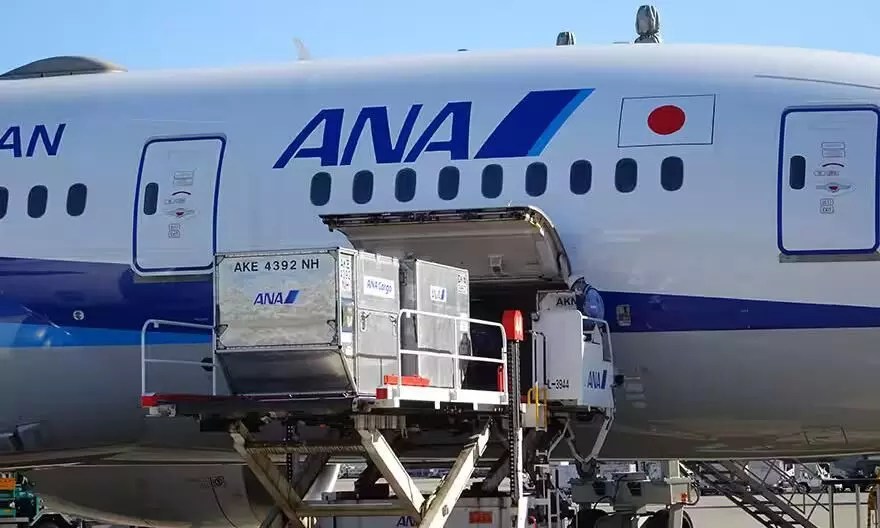
ANA implements IATA's DG AutoCheck Connect API
ANA is the first airline in Asia to implement IATA's DG AutoCheck connect API into its international cargo system.

All Nippon Airways (ANA) is the first airline in Asia to implement DG AutoCheck Connect API, the newest feature of IATA's DG AutoCheck. It will help in the digitalization of the air cargo industry by automating the transfer of data from DG AutoCheck, an electronic verification system for dangerous goods declarations based on the Dangerous Goods Regulations provided by IATA, into its international cargo system.
The technology digitizes the dangerous goods consignment operations and information registration, eliminating the need for manual checks against declaration forms, regulation books and paper checklists. This electronic data-based check system, along with rulebooks, enhances operational efficiency at airports, reduces human error and improves aviation safety. ANA has begun initiating DG AutoCheck at Tokyo Narita, Tokyo Haneda and Osaka Kansai airports, with plans to expand to more airports in the future.
DG AutoCheck converts the Dangerous Goods Declaration Forms received from shippers or air cargo agents into data. ANA aims to align with IATA's goal of digitizing all paper-based information in air cargo transportation (e-freight) to achieve consistent data exchange and processing industry wide.
"ANA strives to be at the forefront of innovation in our global air cargo operations, prioritizing safety and efficiency," said Kenichi Wakiya, executive vice president of ANA and President of ANA Cargo. "The implementation of DG AutoCheck enhances our capabilities through digitizing critical information that will benefit our customers."
"Efficiently exchanging data with Connect API will help deliver the speed, quality, compliance and ultimately safety benefits of digitalization that air cargo customers are demanding. These benefits are real and measurable. Today it can take up to 100 minutes to get flight crew of freighter operations, detailed information on dangerous goods in the payload through NOTOC systems. With Connect API, this will be instantaneous. We are proud to be launching Connect API with ANA, bringing benefits to their customers," said Frederic Leger, IATA's Senior Vice President Commercial Products and Services. ANA will continue to pursue the digitization of air cargo transportation, to enhance customer convenience, operational efficiency and ensure secure cargo transport through reliable data.
DG AutoCheck is a digital solution that facilitates the acceptance of dangerous goods by checking the compliance of the Shipper's Declaration for Dangerous Goods (DGD) against all relevant rules and regulations contained in the IATA Dangerous Goods Regulations (DGR). Optical character recognition technology transforms the paper DGD into electronic data. DG AutoCheck can also receive electronic Shipper's Declaration for Dangerous Goods (e-DGD). This data is then processed and verified automatically using the digital version of the DGR.
DG AutoCheck also facilitates a ground handler's or airline's decision to accept or reject a shipment during the physical inspection stage by providing a pictorial representation of the package with the marking and labelling required for air transport. For example, DG AutoCheck helps DG acceptance staff to check if all prerequisites for acceptance are met on shipments of lithium batteries. Due to an increase in the transportation of lithium batteries worldwide and the difference in type, packaging and safety hazard of these batteries, DG AutoCheck has a distinct added value in safety and efficiency.
E-freight is a project promoted by IATA as part of its Simplifying the Business Programmer to promote the computerization of documents related to freight forwarding.

